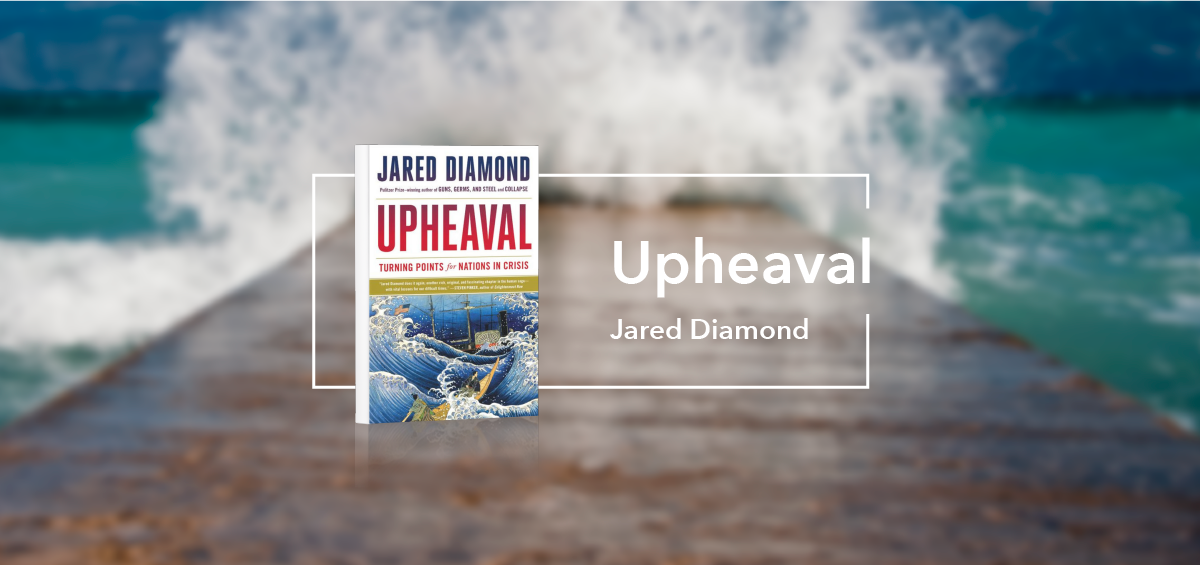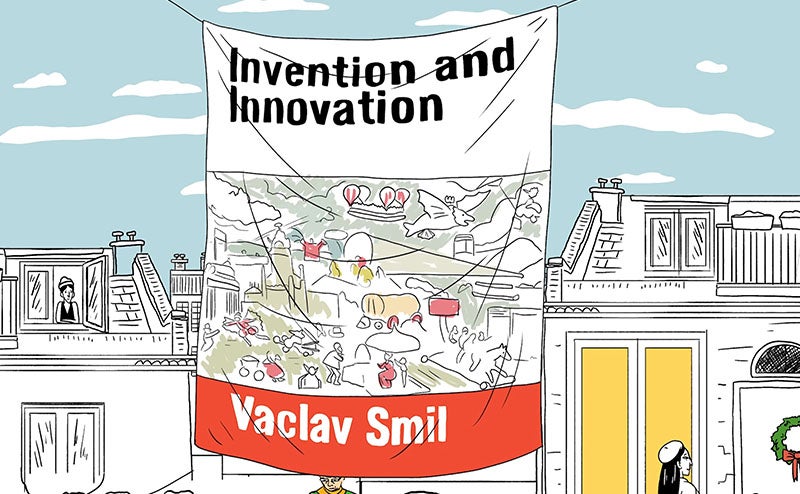We loved his message, but even more, we loved the way he delivered it.
I feel very lucky to work with my wife, and not just because I get to spend extra time with her. Melinda’s way of looking at the world makes me better at my job.
Jared Diamond says he owes the idea for his new book Upheaval to his wife, Marie Cohen, who’s a psychologist. Jared is already a polymath. Although he was trained in physiology, his books usually blend anthropology and history, and he’s a professor of geography. Add in Marie’s perspective, and you have the recipe for this discipline-bending book that uses key principles of crisis therapy to understand what happens to nations in crisis.
I love all of Jared’s books. I still rank Guns, Germs, and Steel as one of the best things I’ve ever read. Luckily for fans like me, Jared is very prolific and publishes a new book every few years. I had a great time sitting down with him in my office recently and asking him about his unusual perspective on human history.
Jared starts Upheaval by explaining what psychologists know about how people react when their lives are turned upside down. Moments of crisis like the death of a loved one or becoming an empty-nester (to name just a couple) pose very basic questions about who we are and how we want to live. Some people can’t answer the questions and get stuck. Others work their way through the process and end up better off.
Over the years, crisis therapists have learned why people do (or don’t) navigate crises successfully. For example: they acknowledge they have a problem and take responsibility for dealing with it; they separate core values that won’t change from bad habits that need to change; they seek help from those who have dealt with similar difficulties.
Jared boils these insights down to 12 success factors, adapts them a little bit, and uses them to construct a series of fascinating case studies about how nations (Australia, Chile, Finland, Germany, Indonesia, and Japan) have managed existential challenges like civil war, foreign threats, or general malaise. I admit that at first I thought it might be a little strange to borrow from a model of a single person’s emotional turmoil to explain the evolution of entire societies. But it isn’t strange at all; it’s revealing.
My favorite case study, because I knew so little about it, describes how Finland coped with sharing an almost a 1000-mile-long border with the Soviet Union. Gates Notes Insiders can download a free excerpt of the Finland chapter here:
It had never occurred to me to ask this question before, but why is Finland like Scandinavia instead of like Eastern Europe? After all, the Soviet Union invaded Finland during World War II, just like it invaded Poland.
Jared’s answer is based on his 12-part model. (He goes through all 12 parts one by one in every case study, which gets slightly tedious, but it’s easy enough to skim once you get the hang of what he’s doing.) Finland has a powerful sense of its own uniqueness and was dead set on maintaining its independence. To make the point about the strength of Finnish national identity, Jared takes you on a fun tour of the notoriously difficult Finnish language.
Though Finland was proud, it was also realistic. It understood that if the Soviets felt like taking over, they would. So, instead of ignoring the Soviet presence, which is what it had done before World War II, Finland decided to persuade the Soviets that they would gain nothing by occupying the country.
Finland’s leaders entered into trade deals with the Soviets. Finns had to drive around in shoddy Soviet cars, but they also had access to Russian oil when the rest of the world was suffering from a shortage.
Sometimes, staying in the Soviets’ good graces required questionable sacrifices. For example, the Finnish press was routinely silent on Soviet abuses in order to avoid giving offense. Diplomats coined the term “Finlandization” to mean weaker countries pandering unnecessarily to stronger ones, but Jared points out that the countries these diplomats represented never came to Finland’s aid when it was desperately trying to hold off invading Soviet troops during the war.
Amazingly, by taking this approach, Finland not only maintained its status as an independent democracy; it also made itself indispensable to the Soviets as a source of Western technology and the country’s window to the West. Ultimately, Finland was much more useful to the Soviet Union as a friend than it would have been as just another puppet state.
At the end of the book, Jared switches from looking back to looking forward. He lays out some of the biggest challenges facing the world at this moment—everything from climate change to political polarization—and considers how we might marshal the 12 factors to come out better in the end.
In some of his previous books, Jared has been less optimistic than I am about where we’re headed. In Collapse, for example, he studied what makes societies fail, which is bound to be a bit of a downer.
In Upheaval, though, he reminds us that some countries have creatively solved their biggest problems. Jared doesn’t go so far as to predict that we’ll successfully address our most serious challenges, but he shows that there’s a path through crisis and that we can choose to take it.





